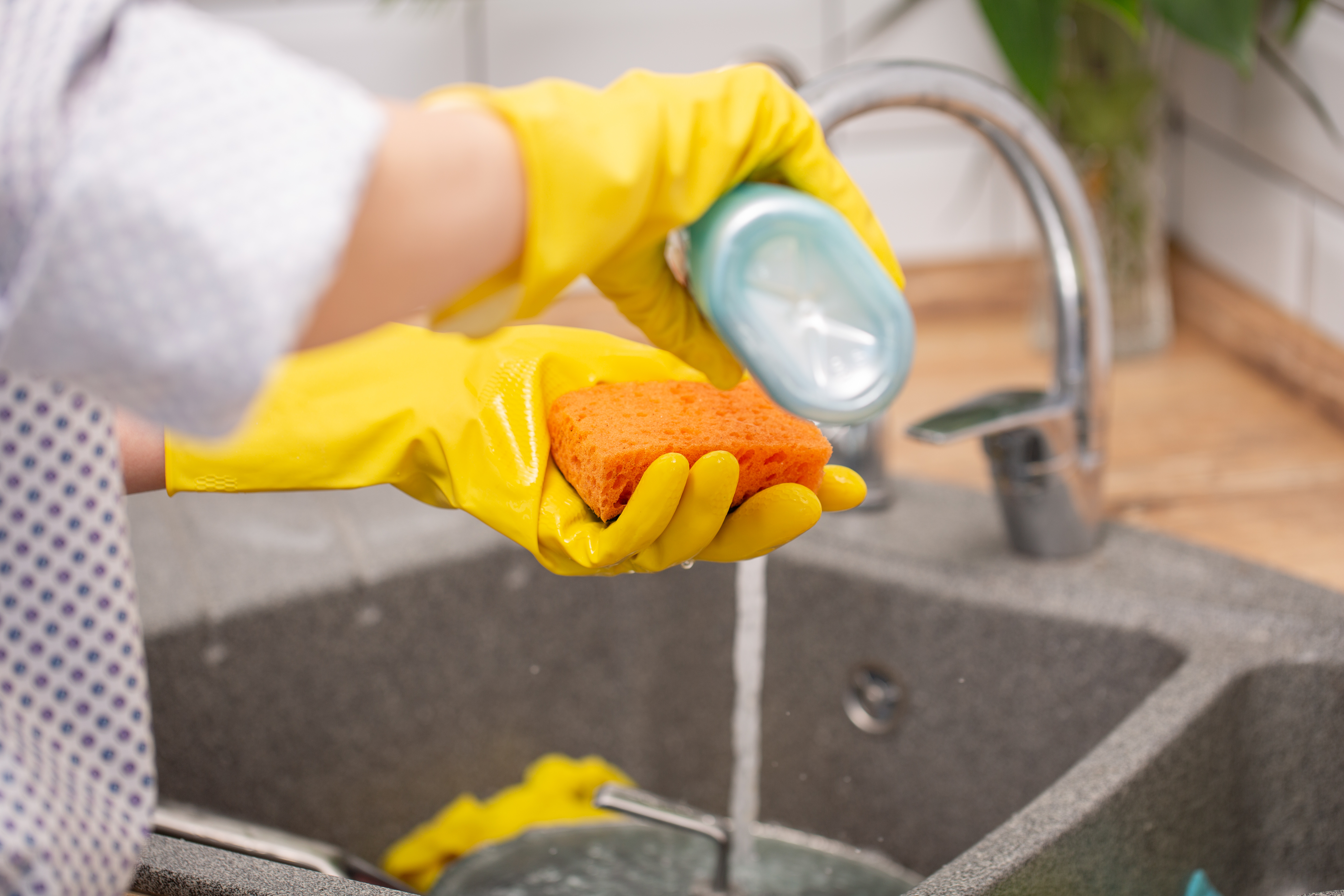 Summer is here and, whilst it may not be another heat wave, it’s still warm, which turns your workplace into the perfect breeding ground for germs, bacteria, mould and vermin. Add into the mix that shared kitchens can get a little neglected and you’ve got a recipe for trouble. Hiring a professional office cleaner can stop this problem and ease your worries immediately, but in the meantime, here are some hygiene hot spots to keep an eye on.
Summer is here and, whilst it may not be another heat wave, it’s still warm, which turns your workplace into the perfect breeding ground for germs, bacteria, mould and vermin. Add into the mix that shared kitchens can get a little neglected and you’ve got a recipe for trouble. Hiring a professional office cleaner can stop this problem and ease your worries immediately, but in the meantime, here are some hygiene hot spots to keep an eye on.
Sponges
Kitchen sponges are the ideal place for pathogens to multiply because they’re moist; add the warmth of summer and it’s party time for bacteria. A sponge can contain all types of bacteria, including salmonella, E. coli, listeria and staphylococcus, all of which can cause unpleasant stomach bugs or skin conditions. To reduce the risk of spreading germs, replace sponges regularly, store in a dry location and avoid using them to wipe surfaces. Using a single-use paper towel will reduce he risk of spreading germs around.
Dishcloths
Dishcloths are popular for everything from washing up, to wiping counter tops and cleaning spills, but, just like sponges, they are a fertile breeding ground for bacteria. A damp and smelly dishcloth means that germs are multiplying so you need to wash your dishcloths on a regular basis on the hottest cycle of your washing machine to ensure that all of the germs are killed. It is also recommended that they are tumble-dried to stop any bacteria returning before they are used again.
Bins
A lot of pests thrive in warmer weather, so you need to be on high alert during the summer months. Decomposing food in the bin attracts all sorts of vermin, including cockroaches, mice and rats, all of which are unhygienic and hard to get rid of. Make sure all bins, including compost bins, are properly sealed and emptied outside of the building each day.
Food cupboards
Warm conditions encourage food to get mouldy quicker than usual, especially on fruit or vegetable, and items sealed in plastic bags such as bread and pastries. Mould releases mycotoxins into the food it colonises, which can be highly toxic to humans, so food with even the smallest speck of mould on should be thrown out immediately as it will only get worse. Check food in all cupboards and the fridge on a daily basis to make sure it is still fit for consumption.
